struggling roses with old clematis
lkayetwvz5
5 years ago
Featured Answer
Sort by:Oldest
Comments (31)
lkayetwvz5
5 years agolast modified: 5 years agoRelated Discussions
Two Rose Questions (one struggling transplant, one climber!)
Comments (1)I know it's low-resolution, but these are the blooms from my rosebush from last June, just remembered I had this photo somewhere....See MoreOld Garden Roses and Clematis
Comments (3)Thank you, Rita. No need to be jealous...Your bloom has started with the daffodils, and it will only continue and get better. I love roses period! You have so many lovely ones, and your clematis tower is to die for! I have blooms on pretty much all of my clematis. Those two new ones in the greenhouse may wind up in the new rose area I am working on right now. I have another older hybrid tea rose coming with the new order from Vintage. It is Jean Cote, and the pictures I've seen are lovely. I am going to have to get a new type of fungicide spray for the roses, because the last one I used doesn't seem to be working very well. I am alternating, and I think I will have to spar at least every 10 days, but it isn't a big deal since I currently have fewer than 40 roses. kay...See MoreRose bush struggling
Comments (9)Hi Jumanji, welcome to the rose forum. Where do you live (city & state) and how many hours of sun does your rose receive each day? Its normal for rose blooms to be short lived in hot weather. I think your rose bush's primary problem is that it needs more leaves....See MoreAlnwick Rose really struggling?
Comments (8)If you're in a cold zone, a likely contributor may be that the canes that appear live are actually on their way out with winter damage that isn't apparent till a little later in spring. I always do about three pruning passes through all my roses in spring, to catch the canes that looked fine a few weeks ago and then slowly (or suddenly) start having dying foliage. It doesn't mean the rose is having problems at all, it's just that those canes aren't viable. Your growth from the base looks nice, so I wouldn't hesitate to prune off canes that are starting to fade. About 75% of my roses are pruned to the ground every year, including a majority of my Austins, but they come back just fine and bloom as if nothing happened by mid-June. Cynthia...See Morelkayetwvz5
5 years agoSheila z8a Rogue Valley OR
5 years agolkayetwvz5
5 years agomonarda_gw
5 years agonoseometer...(7A, SZ10, Albuquerque)
5 years agolast modified: 5 years agomonarda_gw
5 years agolast modified: 5 years agoRosylady (PNW zone 8)
5 years agoingrid_vc so. CA zone 9
5 years agolast modified: 5 years agolkayetwvz5
5 years agolast modified: 5 years agoRosylady (PNW zone 8)
5 years agoingrid_vc so. CA zone 9
5 years agoUser
5 years agonoseometer...(7A, SZ10, Albuquerque)
5 years agoUser
5 years agomonarda_gw
5 years agonoseometer...(7A, SZ10, Albuquerque)
5 years agoingrid_vc so. CA zone 9
5 years agoUser
5 years agolkayetwvz5
5 years agoKristine LeGault 8a pnw
5 years agonoseometer...(7A, SZ10, Albuquerque)
5 years agoRosylady (PNW zone 8)
5 years agoUser
5 years agoUser
5 years ago
Related Stories
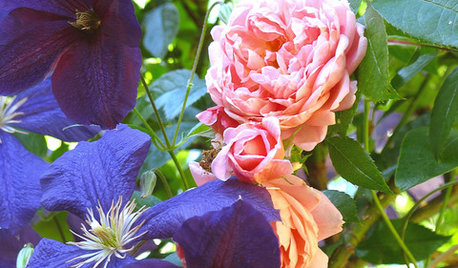
PLANTING IDEASGreat Garden Combo: Rose + Clematis for Small-Space Impact
We all need somebody to lean on. And when a rose supports a climbing vine, the results can totally transform a small garden
Full Story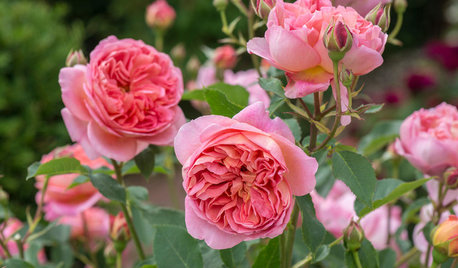
GARDENING GUIDESYou’re Going to Want to Stop and Smell These Roses
See top picks from David Austin’s most fragrant roses in colors ranging from ivory to crimson
Full Story
WINTER GARDENINGPruning Secrets for Exquisite Roses
Encourage gorgeous blooms year after year with this time-tested advice on how to prune your rosebush in winter for health and shape
Full Story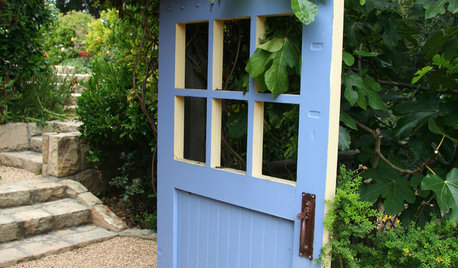
LANDSCAPE DESIGNArtful Salvage: Old Doors Decorate the Garden
In a fence or leading only to imagination, salvaged doors can create lots of intrigue for little cash
Full Story
GARDENING GUIDESGreat Design Plant: Sally Holmes Rose
This simple yet versatile climbing rose grows vigorously all year; plant now for abundant spring and summer blooms
Full Story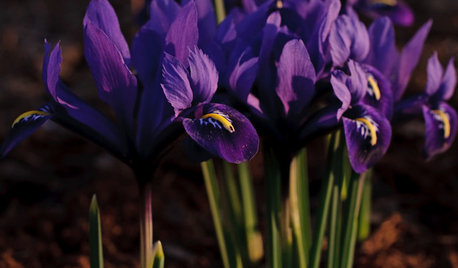
GARDENING GUIDESGreat Lakes Gardener's March Checklist
Spy emerging bulb blooms, raise an eye to the sky and cut back old foliage to prepare for bigger and better things to come
Full Story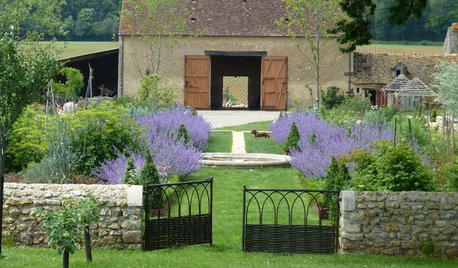
INSPIRING GARDENSWe Can Dream: Lush Life on a Historic Normandy Estate
New gardens surround centuries-old buildings on a 10-acre property in France, creating a beautiful haven
Full Story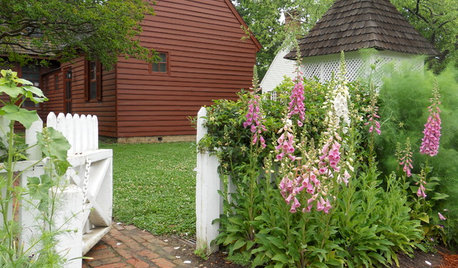
INSPIRING GARDENSSpring Garden Ideas From Colonial Williamsburg
Discover old-time resourcefulness — how gardeners worked the land, used local materials and more — to apply to your landscape today
Full Story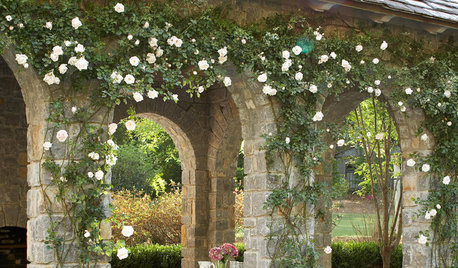
GARDENING GUIDESGreat Design Plant: Rosa Banksiae a Low-Maintenance Beauty
This thornless, disease- and insect-resistant rose brings showers of white or yellow flowers to the spring garden
Full Story




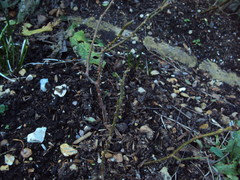
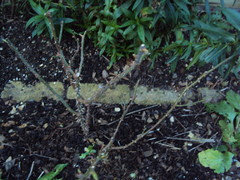

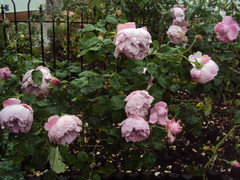


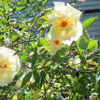


noseometer...(7A, SZ10, Albuquerque)